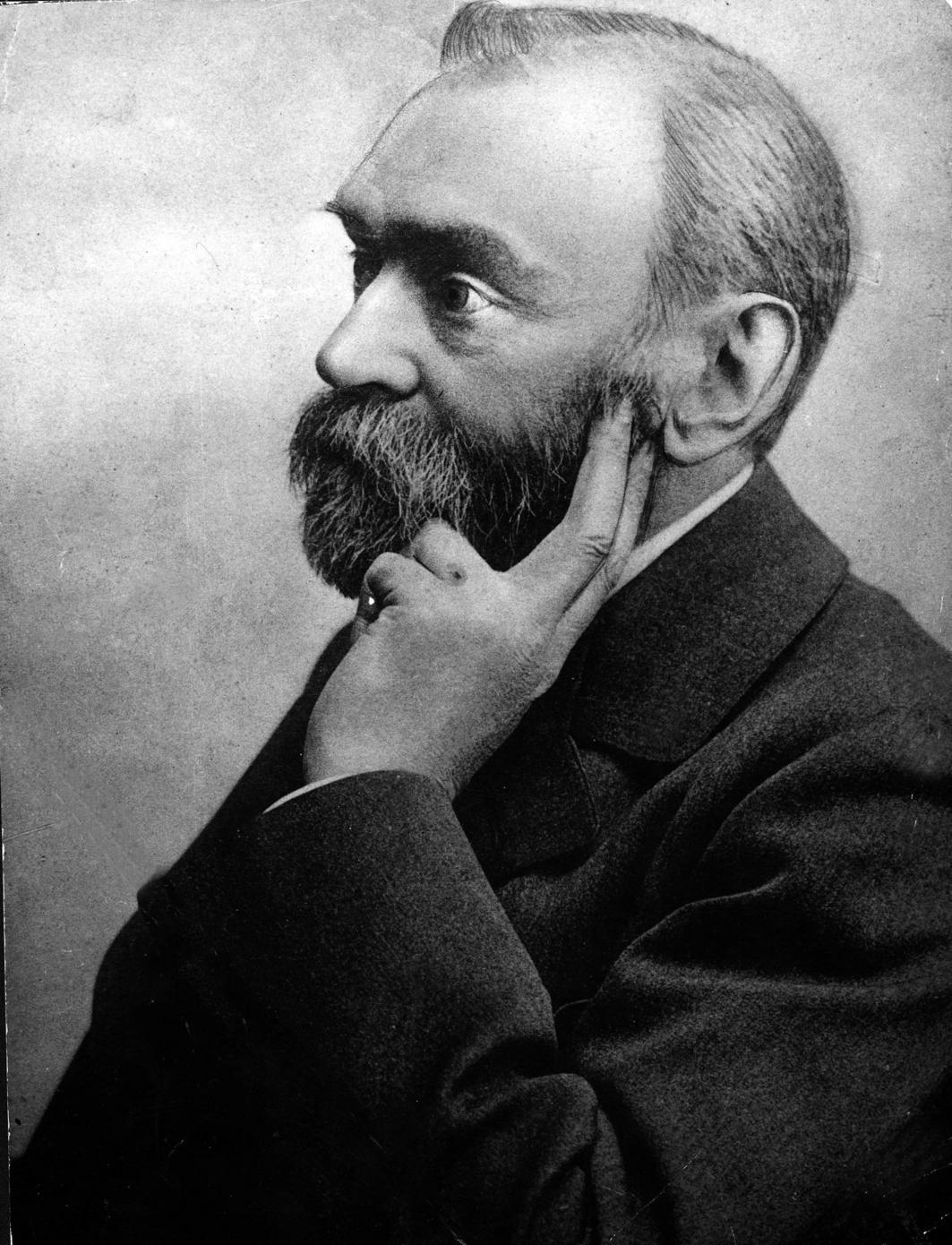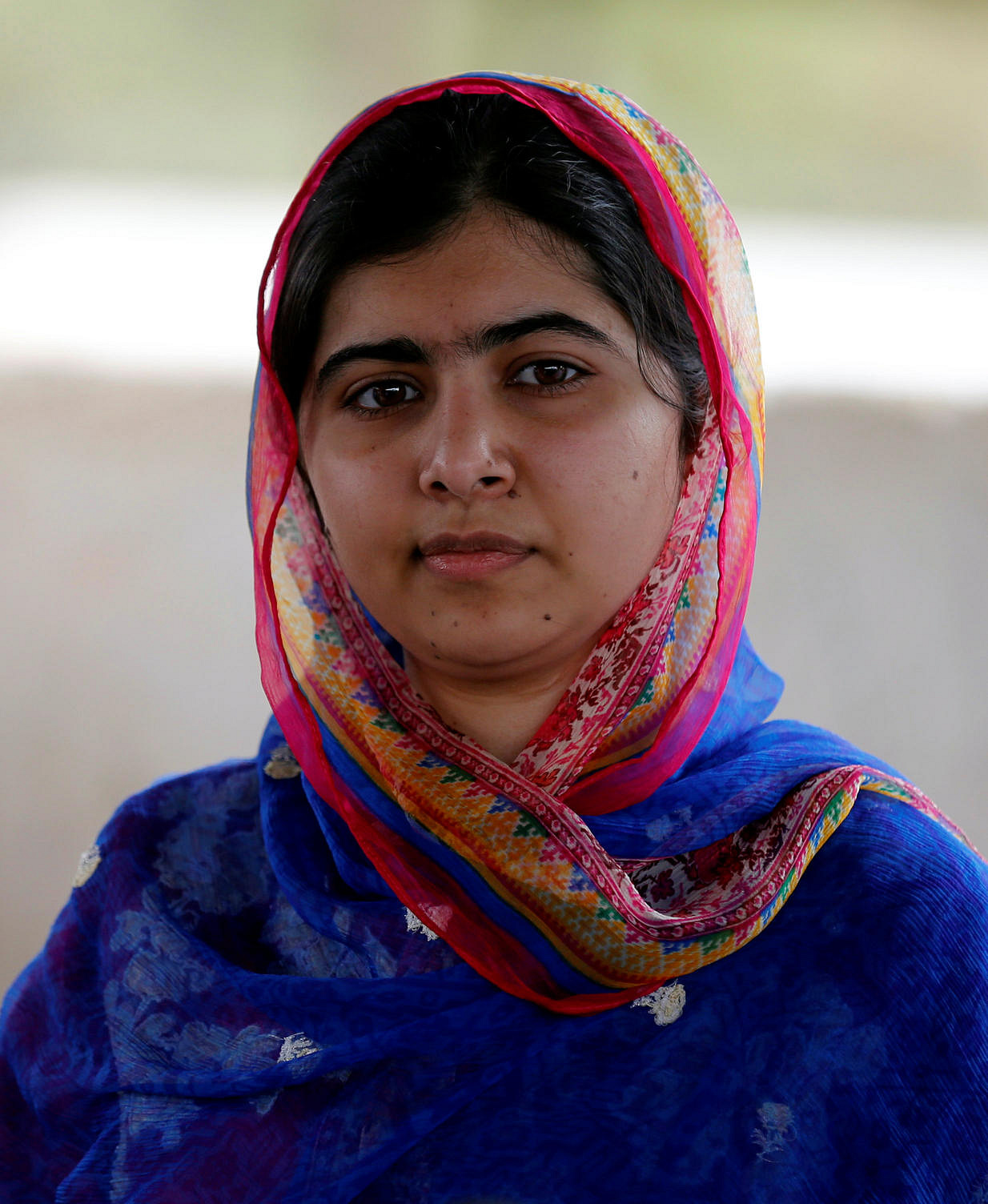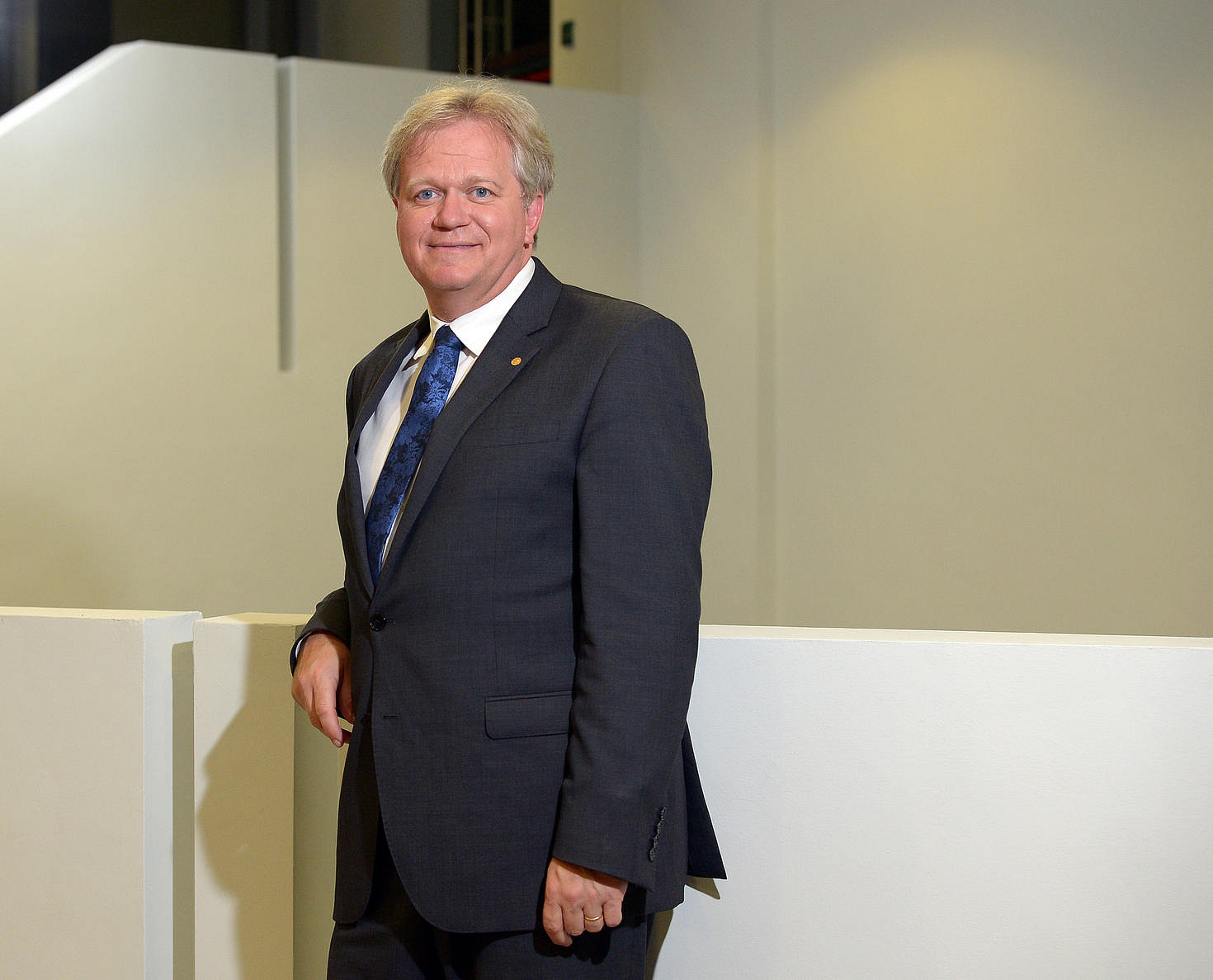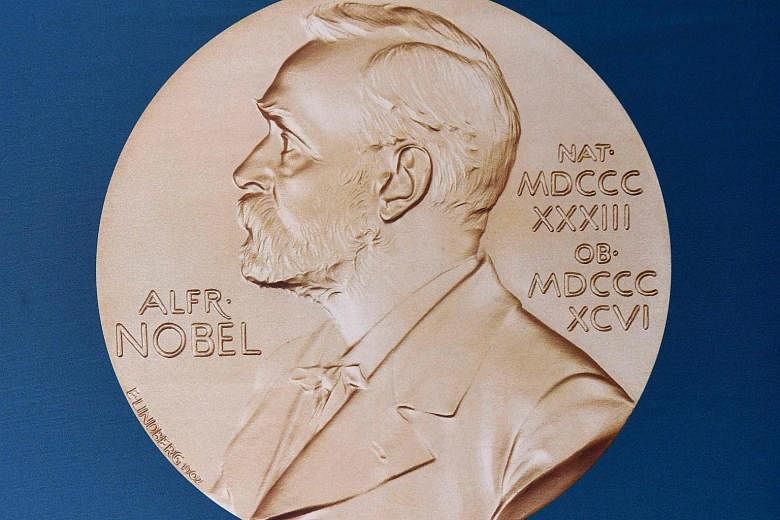This week, assorted scientists, academics, writers and personalities will find themselves newly minted as Nobel laureates.
The annual announcements of the new Nobel Prize winners are made with much fanfare, and laureates will each receive a gold medal from Swedish royalty on Dec 10, the anniversary of prize founder Alfred Nobel's death.
Here are seven things you need to know about one of the most prestigious brain trust awards in the world.
1. What is the Nobel Prize?

The Nobel Prize refers to one of the highest international honours awarded for contributions to the fields of Physics, Chemistry, Physiology or Medicine, Literature and Peace. The first of the Nobel Prizes was handed in 1901.
There is no Nobel Prize in Economics, but outstanding economists are eligible for the Sveriges Riksbank Prize in Economic Sciences in Memory of Alfred Nobel, established by Sweden's central bank in 1968.
2. How did it come about?

The Nobel Prizes were set up in the will of Alfred Nobel, a Swedish entrepreneur born in 1833.
Nobel built up the family coffers in the mid-19th century by developing safer methods for detonating the recently discovered explosive nitroglycerine. His claim to fame, however, stems from his invention of dynamite.
In a will signed in 1895, the year before he died, Nobel wrote that "the whole of my remaining realisable estate" should be used to set up a fund for the Nobel Prizes.
Upon discovering his intention to give away all his money, Nobel's family strenuously objected to the establishment of the Nobel Prizes, leading to a delay in the awards being given out.
3. Who decides who makes the cut?
In accordance with Nobel's will, the Royal Swedish Academy of Sciences administers the Nobel Prize in Physics and Chemistry. It was also given the responsibility for the Sveriges Riksbank Prize in Economic Sciences in 1969.
The Karolinska Institutet, a medical university in Sweden, manages the Nobel Prize in Physiology or Medicine.
The Swedish Academy, founded in 1786 by King Gustaf III to promote the Swedish language and literature, awards the Nobel Prize in Literature.
The Nobel Peace Prize is decided by a five-person committee elected by the Norwegian Parliament.
4. What do you get for winning a Nobel Prize?
Prize winners are called laureates, after the Greek laurel wreath given to champions in ancient times.
Nobel laureates receive gold medals as well as diplomas decorated with the work of renowned artists and calligraphers.
The prize money comes out of income from investments made with the late Nobel's estate. The purse is currently 8 million kronor (S$1.3 million) for the full award.
5. Who wins Nobel Prizes?

Nobel wrote in his will that "no consideration be given to the nationality of the candidates" for his namesake prizes. Instead, he stipulated that "the most worthy shall receive the prize, whether he be Scandinavian or not".
As of 2015, the United States was the birthplace of 258 laureates. Sweden has produced 29.
Malala Yousafzai, who won the 2014 Nobel Peace Prize at the age of 17, is the youngest Nobel winner. The oldest, Leonid Hurwicz, was 90 when jointly awarded the economics prize in 2007.
Forty-eight women have clinched the awards, with Marie Sklodowska Curie taking the prize home twice - for physics in 1903 and chemistry in 1911.
Curie was the first woman to win a Nobel Prize, followed by Nobel's friend Baroness Bertha Sophie Felicita von Suttner, who won the Peace Prize in 1905 for her pacifist activism.
6. Would you ever say no to a Nobel Prize?
Two Nobel laureates declined their prizes.
The existentialist Jean-Paul Sartre, having refused all official honours, could hardly say yes to his 1964 Nobel Prize in Literature.
And Vietnamese communist leader Le Duc Tho, who was jointly awarded the 1973 Peace Prize with US Secretary of State Henry Kissinger, said he could not accept it when peace had not been achieved in Vietnam.
Adolf Hitler also forbade Richard Kuhn, Adolf Butenandt and Gerhard Domagk from accepting their prizes in 1938 and 1939, while the Soviet Union forced Boris Pasternak to turn down his 1958 literature award.
7. What about saying no to the medal?
Even picking up your prize can be a hassle.

Astrophysicist Brian Schmidt has spoken of the sceptical reaction that airport security gave the gold medal he won in 2011 for co-discovering dark energy.
"'Who gave this to you?'" Schmidt recalled being asked while trying to visit his grandmother in North Dakota.
"'The King of Sweden.'
"'Why did he give this to you?'
"'Because I helped discover the expansion rate of the universe was accelerating.'
"At which point, they were beginning to lose their sense of humour."
But inconvenient as Schmidt's travels were, the situation could have been much worse.
With World War II on the horizon, German laureates Max von Laue and James Franck, who had both won the Nobel Prize in Physics, sent their medals to fellow laureate Niels Bohr's research centre in Denmark for safekeeping.
Von Laue and Franck feared that their medals would be confiscated by German authorities, as gold was forbidden from being sent out of the country.
But when Nazi forces marched on Copenhagen, Bohr feared that the discovery of the medals - which were engraved with the winners' names - would put his fellow scientists at risk. The original medals were hurriedly dissolved in strong acid.
Fresh medals were presented to von Laue and Franck after the war.


